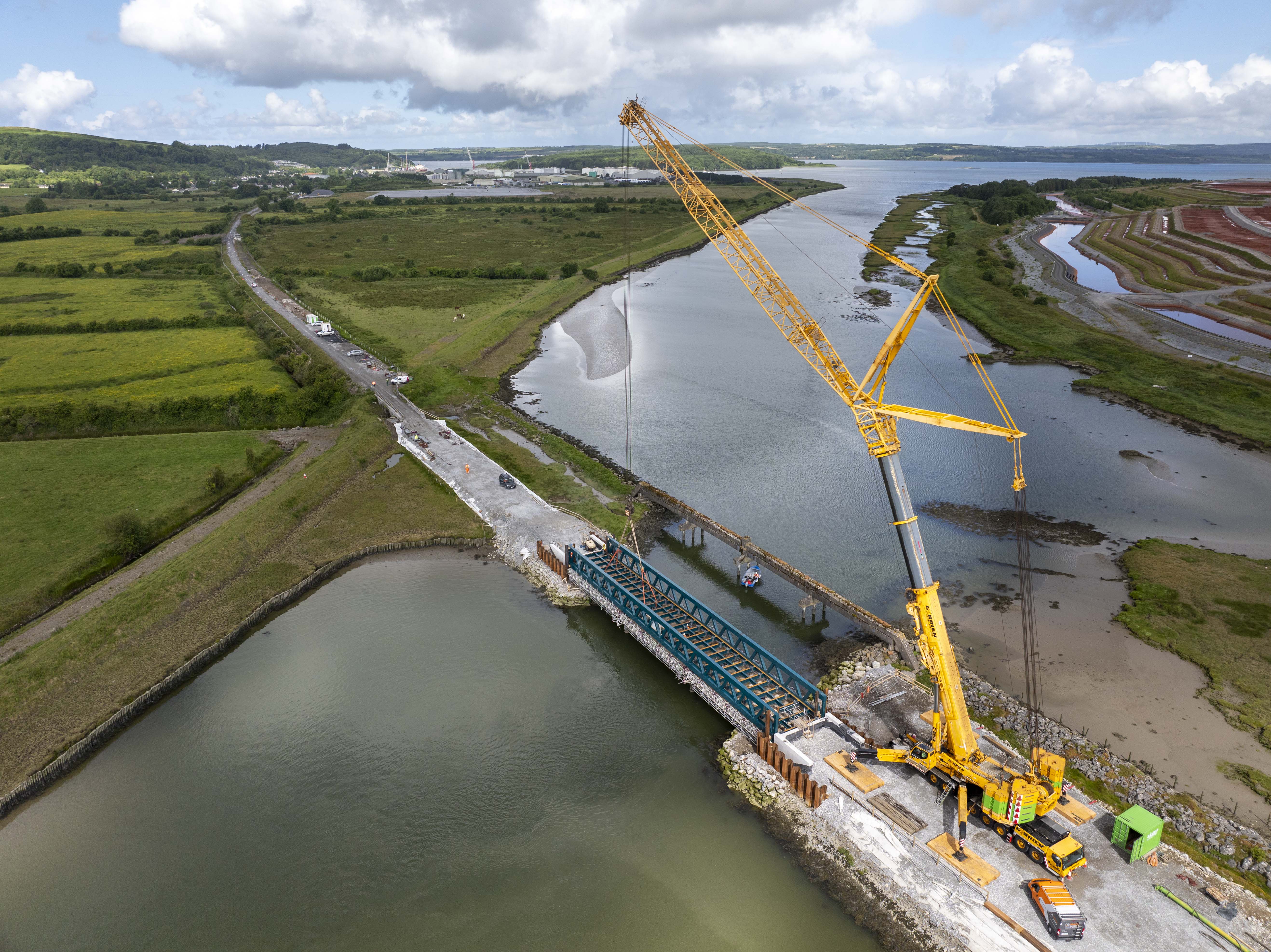CIÉ, as the EFB, are tasked with carrying out the necessary essential functions of the Infrastructure Manager for the Iarnród Éireann network in relation to “decision-making concerning train path allocation, including both the definition and the assessment of availability and the allocation of individual train paths, and decision-making concerning infrastructure charging, including determination and collection of charges, in accordance with the capacity allocation framework and charging framework” as laid out under the European Union (Regulation of Railways) Regulations (S.I. 249 of 2015 and amended by S.I. 398 of 2020).
It is agreed with the Department of Transport that the EFB sits within the CIÉ Holding Company so it can be independent in its decision making, separate from any Railway Undertaking.


At present alongside the National operator, Iarnród Éireann -Irish Rail, a subsidiary company of CIÉ, Northern Ireland Railways (Translink) and the Railway Preservation Society of Ireland (RPSI) are additionally cleared to operate across the Iarnród Éireann network.
A Railway Undertaking which is licensed to operate in the European Union and has secured the necessary clearances to operate across the Iarnród Éireann network may apply to the EFB for train paths should they wish to operate services in the Republic of Ireland. Such applicants must provide a minimum of 18 months’ notice in advance of the timetable commencement date for which they intend to secure capacity.
The determining, administering, and collection of Track Access Charges also fall within the remit of the EFB. Such charges are payable by all operators which operate on the Iarnród Éireann network. They form part of the minimum access package and are used to fund IM operations and maintenance.
Track access charges are comprised of:
Variable usage charge:
This charge is payable by all operators and service types and must reflect the maintenance and renewal costs of the IM that vary with traffic and reflect the cost of operating the service.
Variable usage traction power charge:
This charge is only borne by services that make use of the OHLE system. It is designed to cover the costs of the IM that vary with traffic for maintaining the OHLE equipment.
The legislation outlined above which was transposed from the European Commission Directive 2012/34 outlines the list of parameters of what can/cannot be included in the calculation of the variable access charge.
Fixed cost mark up:
This charge seeks to cover the residual funding requirement of the IM after calculation of the minimum access charge when total costs of maintenance and operation in addition to other sources of revenue are considered. At present, this is only payable on WTT PSO funded services.
Freight only line charge:
This charge is payable on lines which operate purely for the operation of freight traffic. It is calculated on an ability to pay basis.

The EFB commissioned CEPA to conduct a review of the track access charging regime during 2025.
CEPA have recommended moving the current variable unit charge to a train km basis from the current system of per gross tonne km.
This revised model was recommended as the most appropriate, better reflecting Ireland’s market and is to be introduced from 1st January 2027.
The variable rates effective from that date, will be:
€1.9268 per train km (variable usage charge)
€0.4074 per train km (variable usage traction power charge)
Current charging rates as outlined in the Network Statement and apply until December 31st 2026 are as follows:
€0.0077 per gross tonne km (variable usage charge)
€0.001 per gross tonne km (variable usage traction power charge)
A temporary reduced rate will remain in place for freight traffic of €0.001925 per gross tonne km. This was introduced under Directive 2012/23/EU as amended by Directive 2016/2370.
For further information, please contact: efb@cie.ie
Please Click Here to read the European Union (Regulation of Railways) Regulations 2015
Please Click Here to read the European Union (Regulation of Railways) (Amendment) Regulations 2020
Please Click Here to read the Iarnród Éireann Network statement 2024
Please Click Here to read the Iarnród Éireann Network statement 2025
Please Click Here to read the Iarnród Éireann Network statement 2026
.jpg?language=en-ie)


